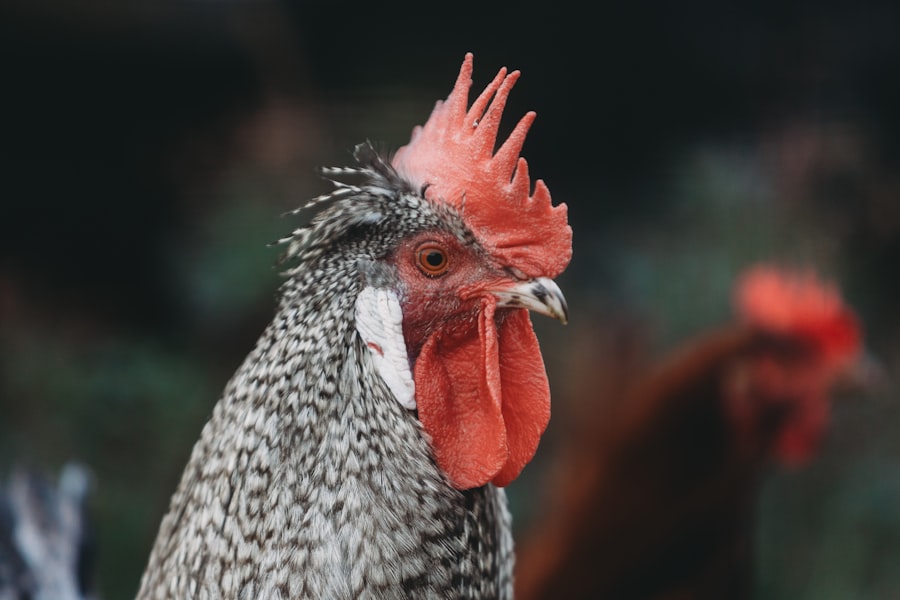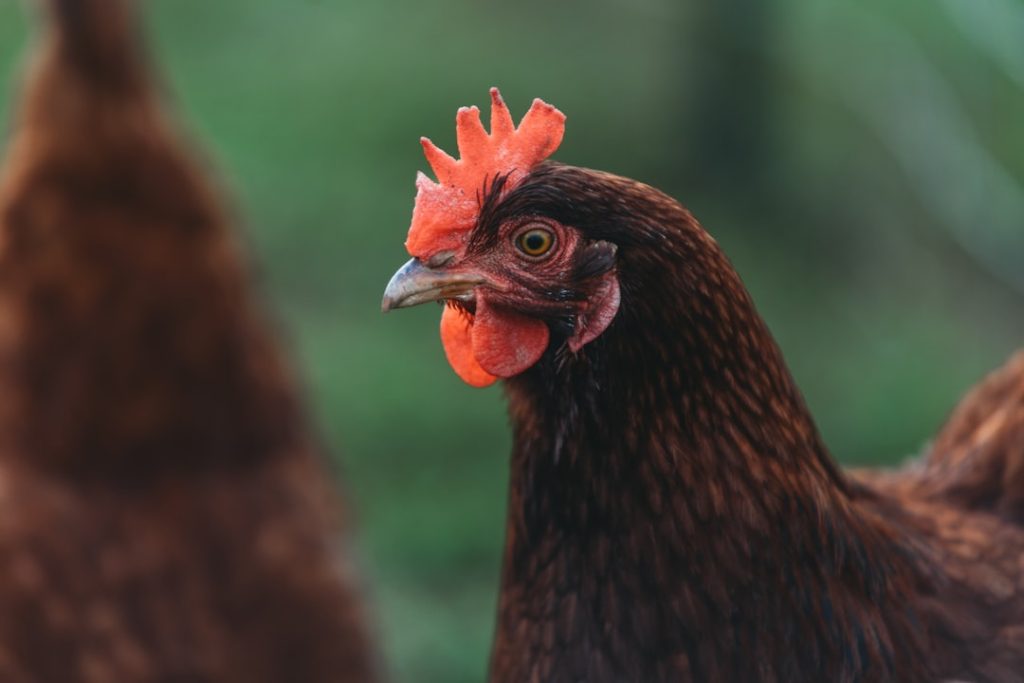Bantam chickens are miniature poultry breeds that have been popular for centuries due to their small size, vibrant feathers, and amiable nature. These birds are commonly kept as pets, for exhibition purposes, or for egg production. Bantams encompass numerous breeds, each with distinct traits and egg-laying capacities.
Known for producing small to medium-sized eggs, these diminutive chickens are favored for backyard egg production. Bantam hens are often broody, making them excellent mothers and natural incubators for hatching eggs. Bantam chickens are well-suited for backyard flocks due to their low maintenance requirements and smaller space needs compared to standard-sized chickens.
Their friendly and social disposition makes them popular among poultry enthusiasts. With proper care, bantam chickens can provide a consistent egg supply while adding visual appeal and character to any flock.
Table of Contents
- 1 Choosing the Right Bantam Breed for Egg Production
- 2 Housing and Caring for Bantam Chickens
- 3 Feeding and Nutrition for Bantam Chickens
- 4 Collecting and Storing Bantam Chicken Eggs
- 5 Health and Safety Considerations for Bantam Chickens
- 6 Tips for Maximizing Egg Production from Bantam Chickens
- 7 FAQs
Key Takeaways
- Bantam chickens are smaller versions of standard chicken breeds, known for their colorful plumage and friendly disposition.
- When choosing a bantam breed for egg production, consider factors such as egg size, frequency of laying, and temperament.
- Housing and caring for bantam chickens requires a secure coop, proper ventilation, and protection from predators.
- Feeding and nutrition for bantam chickens should include a balanced diet of commercial feed, fresh water, and occasional treats.
- Collect and store bantam chicken eggs carefully to ensure freshness and minimize the risk of contamination.
Choosing the Right Bantam Breed for Egg Production
Popular Bantam Breeds for Egg Production
Popular bantam breeds for egg production include the Silkie, Sebright, and Dutch bantams. These breeds are known for their consistent egg production and are often favored by backyard chicken keepers.
Characteristics of Top Bantam Breeds
The Silkie bantam is a popular choice for egg production due to its gentle nature and ability to lay a good number of small to medium-sized eggs. The Sebright bantam is another excellent choice for egg production, as it is known for its hardiness and ability to lay a good number of small eggs. The Dutch bantam is also a great option for egg production, as it is known for its friendly disposition and ability to lay small to medium-sized eggs.
Factors to Consider When Choosing a Bantam Breed
When choosing a bantam breed for egg production, it’s important to consider factors such as egg size, laying frequency, and temperament to ensure that you select the right breed for your specific needs.
Housing and Caring for Bantam Chickens

Proper housing and care are essential for keeping bantam chickens healthy and productive. When it comes to housing, bantams require a secure coop that provides protection from predators and the elements. The coop should be well-ventilated and provide enough space for the bantams to roost and nest comfortably.
Additionally, bantams should have access to a secure outdoor run where they can scratch and forage. Caring for bantam chickens involves providing them with a balanced diet, fresh water, and regular health checks. Bantams should be fed a high-quality layer feed that is specifically formulated for small-breed chickens.
Additionally, they should have access to grit and oyster shell to aid in digestion and eggshell formation. Regular health checks are also important to ensure that bantams are free from parasites and disease. By providing proper housing and care, bantam chickens can thrive and provide a steady supply of eggs for their owners.
Feeding and Nutrition for Bantam Chickens
Feeding and nutrition play a crucial role in the overall health and egg production of bantam chickens. Bantams should be fed a balanced diet that meets their specific nutritional needs. A high-quality layer feed that is formulated for small-breed chickens is essential for ensuring that bantams receive the necessary vitamins, minerals, and protein to support egg production.
Additionally, bantams should have access to fresh water at all times to prevent dehydration and support overall health. In addition to layer feed, bantams can also benefit from supplemental treats such as fruits, vegetables, and mealworms. These treats can provide additional nutrients and help prevent boredom in the flock.
It’s important to offer treats in moderation to prevent nutritional imbalances and obesity. Providing access to grit and oyster shell is also important for bantams, as it aids in digestion and supports strong eggshell formation. By providing a balanced diet and proper nutrition, bantam chickens can maintain good health and lay high-quality eggs.
Collecting and Storing Bantam Chicken Eggs
Collecting and storing bantam chicken eggs is an important aspect of egg production. Bantam eggs are typically smaller than standard-sized chicken eggs, but they are equally delicious and nutritious. When collecting eggs, it’s important to handle them with care to prevent breakage and contamination.
Bantam eggs should be collected daily to ensure freshness and prevent the risk of spoilage. After collecting bantam eggs, they should be stored in a cool, dry place away from direct sunlight. Proper storage helps maintain the quality and freshness of the eggs.
It’s important to store bantam eggs with the pointed end down to help preserve the air cell and prevent the yolk from moving out of position. When stored correctly, bantam eggs can remain fresh for several weeks.
Health and Safety Considerations for Bantam Chickens

Preventing Disease and Parasites
Good biosecurity measures should be practiced to prevent the spread of disease within the flock. Common health issues that can affect bantam chickens include parasites, respiratory infections, and egg binding. It’s essential to be vigilant in monitoring for signs of illness and seek veterinary care if necessary.
Creating a Healthy Environment
Providing a clean and well-maintained living environment can help prevent many health issues from arising. This includes ensuring the coop and run are clean, dry, and free from hazards.
Ensuring a Happy and Productive Flock
By prioritizing the health and safety of bantam chickens, owners can ensure that their flock remains happy, healthy, and productive. Regular health checks, good biosecurity measures, and a clean living environment are all crucial in maintaining a thriving flock.
Tips for Maximizing Egg Production from Bantam Chickens
There are several tips that can help maximize egg production from bantam chickens. Providing a balanced diet that meets their specific nutritional needs is essential for supporting consistent egg production. Additionally, ensuring that bantams have access to fresh water at all times is crucial for maintaining good health and productivity.
Creating a comfortable and stress-free environment can also help maximize egg production from bantam chickens. This includes providing a secure coop and run, as well as minimizing disturbances in the flock’s routine. Regular health checks can help identify any issues that may impact egg production early on.
Finally, providing proper lighting can help stimulate egg production in bantam chickens. Ensuring that the coop receives natural light or supplementing with artificial lighting can help maintain consistent egg production throughout the year. By implementing these tips, owners can help maximize egg production from their bantam chickens while promoting their overall health and well-being.
In conclusion, bantam chickens are a delightful addition to any backyard flock, offering colorful plumage, friendly personalities, and a steady supply of small to medium-sized eggs. By choosing the right breed for egg production, providing proper housing and care, ensuring a balanced diet and nutrition, collecting and storing eggs correctly, prioritizing health and safety considerations, and implementing tips for maximizing egg production, owners can enjoy the many benefits of keeping bantam chickens in their backyard. With the right care and attention, bantam chickens can thrive and provide joy and nourishment for years to come.
If you’re interested in keeping bantam chickens for eggs, you may also want to consider adding guinea fowl to your flock. According to a recent article on Poultry Wizard, guinea fowl can live harmoniously with chickens and provide additional benefits to your poultry setup. Check out the article here for more information on integrating guinea fowl into your backyard poultry operation.
FAQs
What are bantam chickens?
Bantam chickens are small breeds of chickens, typically about one-fourth to one-fifth the size of standard chicken breeds. They come in a variety of colors and feather patterns and are popular for their ornamental and decorative qualities.
Can bantam chickens lay eggs?
Yes, bantam chickens are capable of laying eggs. While they may not lay as many eggs as standard-sized chickens, they can still be productive layers, especially if they are well cared for and provided with a balanced diet.
How many eggs can I expect from a bantam chicken?
The number of eggs a bantam chicken can lay varies depending on the individual bird and its breed. On average, bantam chickens can lay between 150-200 eggs per year, but this can vary.
What are the benefits of keeping bantam chickens for eggs?
Keeping bantam chickens for eggs can be beneficial for those with limited space, as they require less room than standard-sized chickens. Additionally, bantam eggs are often smaller and can be preferred for certain recipes or for those with smaller appetites.
What do bantam chickens need to lay eggs?
To encourage bantam chickens to lay eggs, they need a comfortable and secure nesting area, access to fresh water, a balanced diet that includes layer feed, and a stress-free environment. Providing them with proper care and attention will help ensure they lay eggs regularly.
Are bantam eggs the same as regular chicken eggs?
Bantam eggs are smaller in size compared to regular chicken eggs, but they are essentially the same in terms of nutritional value and taste. Some people prefer bantam eggs for their smaller size and delicate appearance.
Meet Walter, the feathered-friend fanatic of Florida! Nestled in the sunshine state, Walter struts through life with his feathered companions, clucking his way to happiness. With a coop that’s fancier than a five-star hotel, he’s the Don Juan of the chicken world. When he’s not teaching his hens to do the cha-cha, you’ll find him in a heated debate with his prized rooster, Sir Clucks-a-Lot. Walter’s poultry passion is no yolk; he’s the sunny-side-up guy you never knew you needed in your flock of friends!







